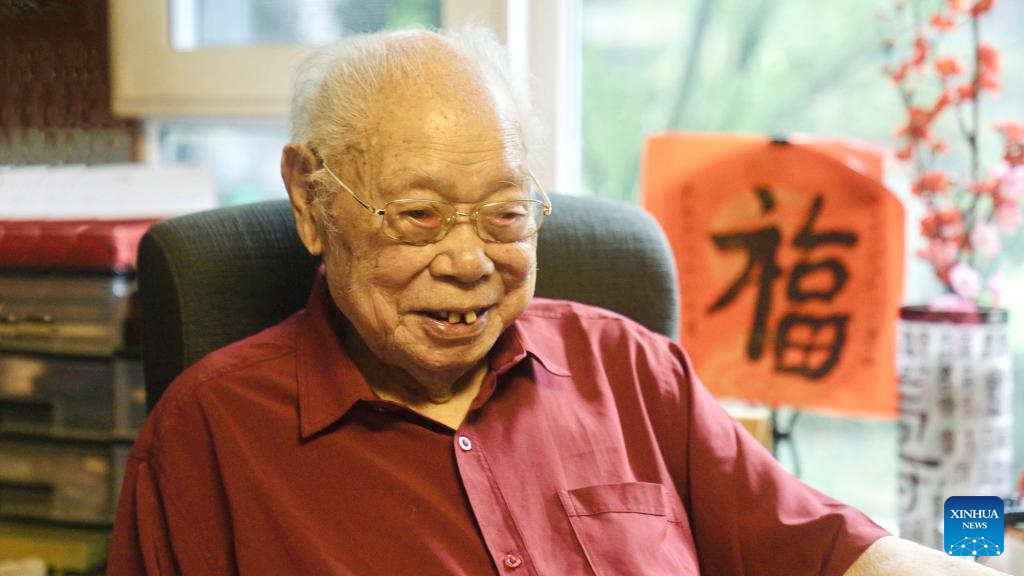
This file photo taken on July 1, 2022 shows renowned Chinese writer Ma Shitu in southwest China's Sichuan Province. He passed away on the evening of March 28, 2024 at the age of 109. (Xinhua)
CHENGDU, April 6 (Xinhua) -- The body of the renowned Chinese writer Ma Shitu was cremated on Thursday in the city of Chengdu in the southwest of China. He passed away on the evening of March 28 at the age of 109.
Born in 1915, Ma was a prominent writer, poet, and calligrapher. He was known for novels such as "Qingjiang Epic" and "Ten Amazing Stories," with a story from the latter adapted into the award-winning film "Let the Bullets Fly."
He once talked about his longevity, saying: "I've lived to be 106 years old. I can still eat and walk, and have a clear mind. It seems I may still live on."
During his early years, he studied at the department of Chinese language and literature at the National Southwestern Associated University, under the tutelage of famous Chinese scholars of the 20th century such as Wen Yiduo, Shen Congwen, and Zhu Ziqing.
He joined the Communist Party of China in 1938. After the founding of the People's Republic of China, he held several offices in southwest China's Sichuan Province, overseeing the construction of Chengdu's sewer system, and projects that preserved the forest at the famous Jiuzhaigou scenic spot and countered grassland desertification.
Despite his busy work schedule, Ma persisted with his writing endeavors. He believed that hard work enriched one's life and enabled one to contribute more to society. Even when his vision severely deteriorated after reaching the age of 100, Ma continued to write, completing several books during this time.
Huang Lixin, president of the Sichuan People's Publishing House, witnessed firsthand the dedication of this writer even after reaching 100 years of age. The publishing house published Ma's book on oracle bone inscriptions.
"For the publication of this book, Ma spent almost every minute apart from eating and sleeping reviewing the manuscript word by word with a magnifying glass," said Huang.
"Ma Shitu's literary path provides multiple perspectives and insights for contemporary Chinese literature," Tie Ning, chairperson of the China Writers Association, once commented. "His style originates from folk traditions, from which he constructed an artistic space with modern sensibilities and Chinese characteristics, through creative transformation and innovation."
Ma was also an accomplished calligrapher. He often auctioned his calligraphy works and donated the proceeds in support of young literary talents.
Ma Shitu's daughter, Ma Wanmei, said that earlier this year, despite his illness, her father had still wished to hold a calligraphy exhibition in Beijing, meet old friends, and donate the proceeds to young students.
Now, the renowned writer has passed away, but his literary works, as well as his resolute and optimistic personality, will live on and continue to inspire future generations. ■



